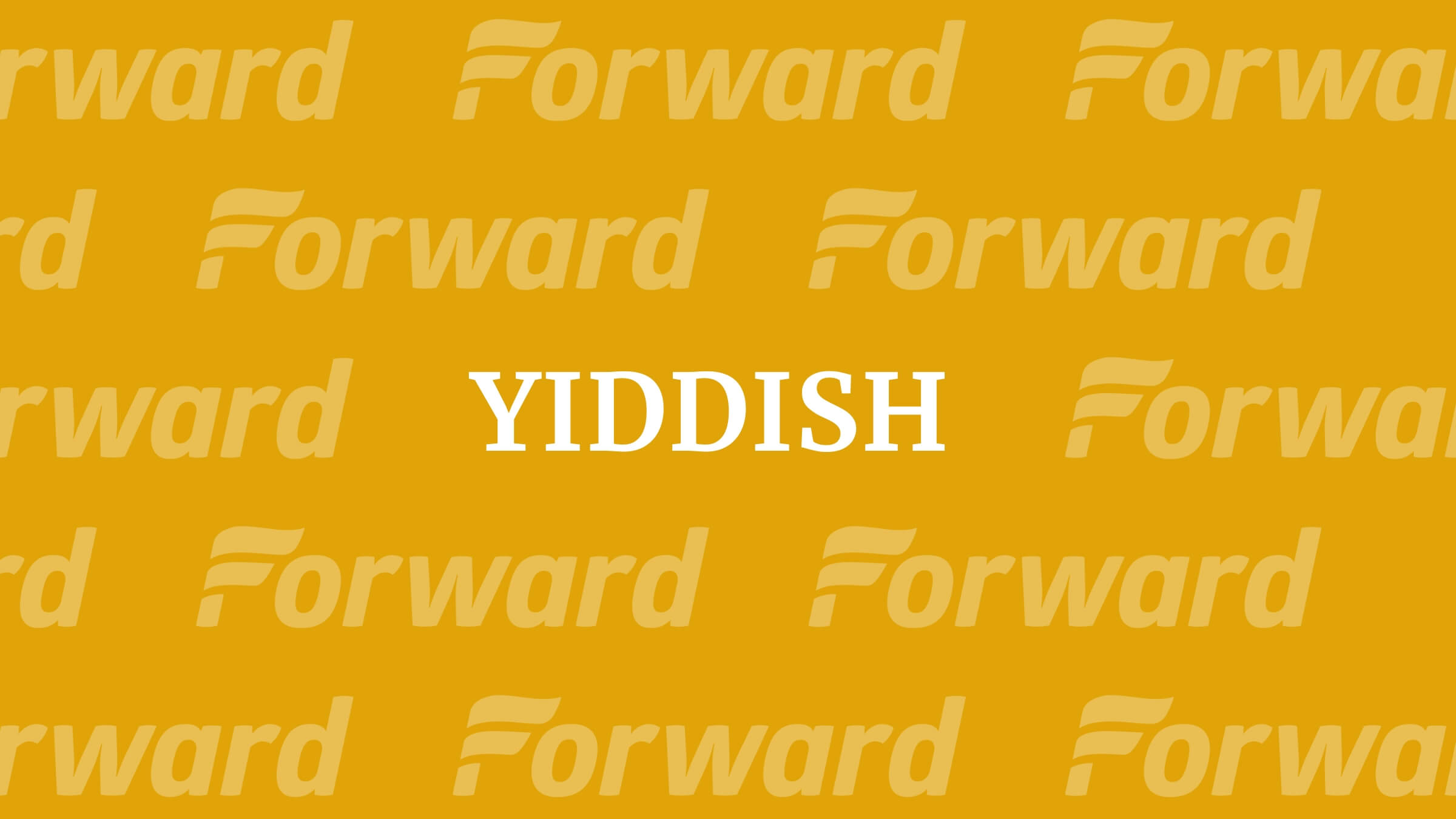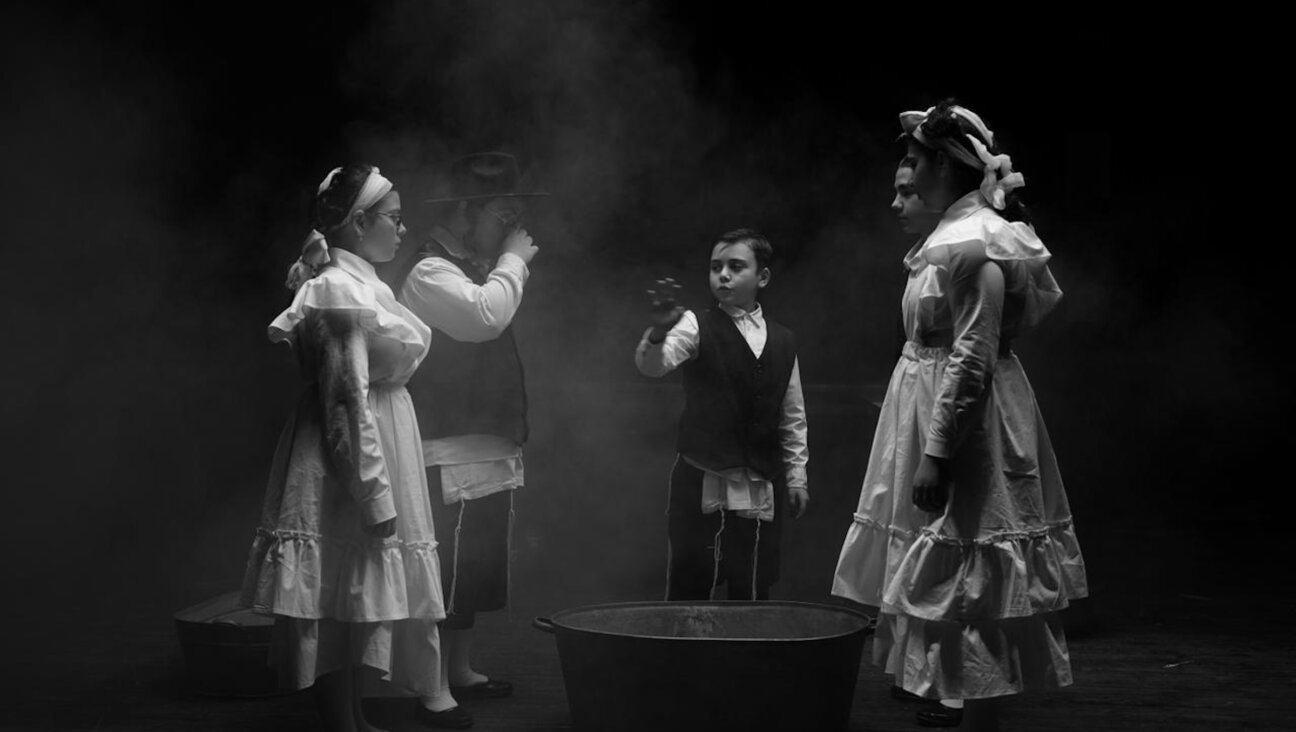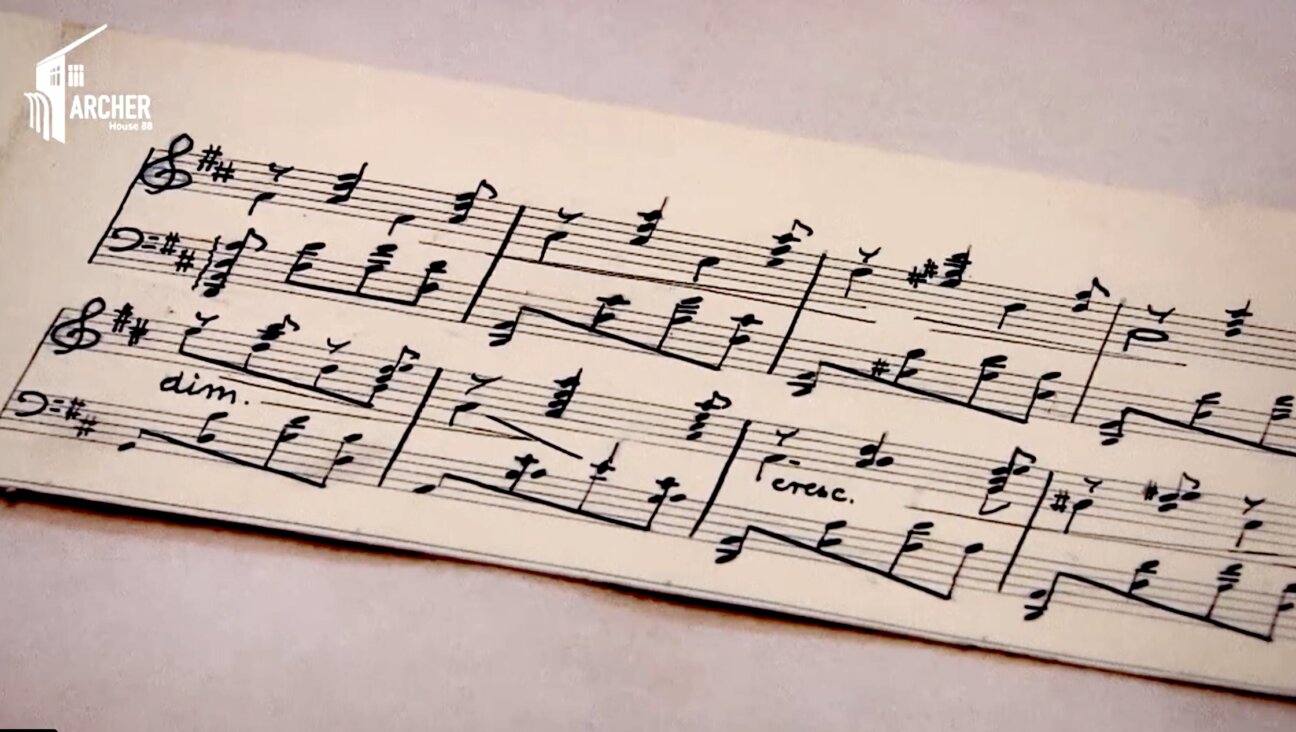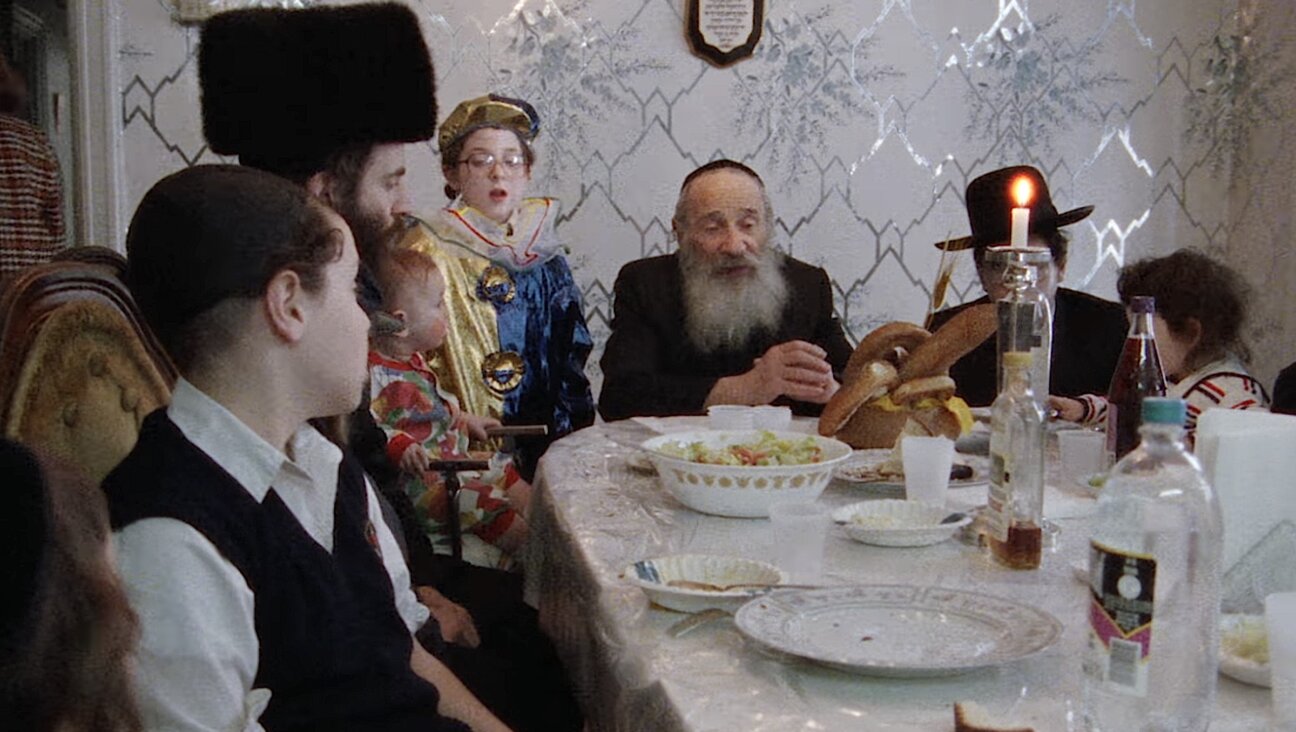April 19: Manhattan commemoration of the Warsaw Ghetto Uprising

Graphic by Angelie Zaslavsky
On Tuesday, April 19 at 1 p.m. there will be an in-person commemorative program dedicated to the Jewish men and women who fought in the Warsaw Ghetto Uprising. The event will take place in Riverside Park, Manhattan.
Since 1947, when the City of New York earmarked a site for a memorial to the Warsaw Ghetto Uprising in the park, a group of Holocaust survivors, Jewish partisans and ghetto fighters, as well as their families and friends, have gathered there every year on April 19 (except during the COVID pandemic) to share memoirs, Yiddish poems and songs in honor of the fighters and in memory of the six million Jews killed by the Nazis.
Der shteyn (the stone), as the site is called, is located in the park between 83rd and 84th Streets. The event is free of charge and open to all.
The Warsaw Ghetto Uprising began on April 19, 1943, when the Jews in the ghetto refused to surrender to the police commander who had ordered the burning of the ghetto, block by block. It was the largest single revolt by Jews during World War II.
In this year’s program, Judy Batalion will talk about her recent book, “The Light of Days: The Untold Story of Women Resistance Fighters in Hitler’s Ghettos;” Steven Meed, whose mother Vladka Meed fought in the Warsaw ghetto uprising, will share selections of her memoirs, and Eleanor Reissa will read from her recent book “The Letters Project: A Daughter’s Journey.”
The event is sponsored by the Congress for Jewish Culture in partnership with Friends of the Bund and in association with the Jewish Labor Committee, the National Yiddish Theater-Folksbiene, POLIN: The Museum of the History of Polish Jews, the Workers Circle and the YIVO Institute for Jewish Research.

















